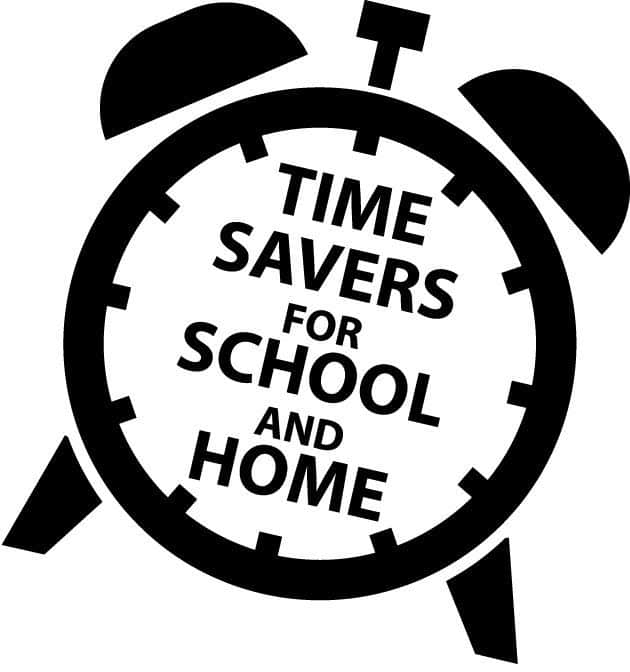Sue Larkey Blog
Helping you “Make a Difference”


Tips, Strategies, Time Savers and Inspiration to help make difference for a child with an ASD in your class, home or community.
How To Set Up Your Own Classroom Hub: How 10 Minutes Can Transform a Student’s Day (Episode 294)
How to set up your own classroom Hub: How 10 Minutes Can Transform a Student's Day How Should I Set Up My Classroom for my Students?Discussed in this Episode: ✅ Create a physical "Hub" space with individual desks, visual timers, and therapeutic tools like theraputty. ✅ Implement daily "anchor points" where high-needs students start their day in the Hub with a structured routine. ✅ Develop "roadmaps" (social scripts) that outline the bones of the day, helping students prepare for transitions and changes. ✅ Establish consistent classroom and playground expectations with simple rules (e.g., whole body listening, hand raising, respect). ✅ Schedule regular regulation breaks instead of reactive "call outs" to prevent escalation. ✅ Create individualised skill-building sessions ("springboards") targeting specific needs like stopping when asked or handling loss. ✅ Develop personal plans that follow students year to year, reducing teacher preparation and student anxiety. ✅ Implement...
Dean Beadle shares his lived experience of embracing his Autistic Identity and finding Autistic Joy (Episode 292)
Dean Beadle shares his lived experience of embracing his Autistic Identity and finding Autistic Joy Lived Experience of Embracing Autistic Identity This month is Autism Awareness month. The 2025 campaign focuses on embracing and uplifting the positive aspects of Autistic identity, empowering individuals to appreciate and take pride in their experiences fully.This weeks Podcast Dean Beadle shares how he has embraced his Autistic identity. One of my biggest role models is Dean Beadle, an autistic speaker and trainer. Dean is a proud promoter of the autistic voice, encouraging and empowering other autistic people to share their experiences and insights too. I am a huge fan of Dean’s work and have toured with him in the past. He is so inspiring and I’m sure you will all enjoy listening to Dean’s personal experience and insight as much as I did! What You'll Hear in This Episode:✅ Reframe autism as a different set of social skills rather than a deficit ✅ Allow for fluctuating...
The Hidden Exhaustion: Recognising Masking in Neurodiverse Students (Episode 293)
The Hidden Exhaustion: Recognising Masking in Neurodiverse Students Masking and Autism Explained in this Episode! Discussed in this Episode: ✅ Schedule regular, discreet check-ins with a trusted adult (teacher, music instructor, grounds person) who can monitor the student's well-being. ✅ Establish a "safe haven" where students can retreat during recess instead of facing the social challenges of the playground. ✅ Create opportunities for students to come in 10 minutes before the rest of the class to help with tasks and decompress. ✅ Pair students with peers who allow them to be themselves rather than forcing them to mask their authentic selves. ✅ Form interest-based clubs (like the "rabbit club" example) where students can connect with like-minded peers in a structured, supportive environment. ✅ Teach students to recognize their emotional states using visual supports like the "spoon theory" to help them communicate their energy levels. ✅ Ensure students have access to...
Understanding PDA & ODD in the Classroom: An Educators Guide (Episode 291)
Understanding PDA & ODD in the Classroom: An Educators Guide Strategies to Help Teach Kids with PDA************************************** Join me for an upcoming Workshop: Sue Larkey Workshops Can't make these Workshop dates? Join me for a self-paced on-demand course: Sue Larkey On-Demand Workshops ************************************** Strategies for Teaching PDA StudentsKey takeaways from this podcast for educators and parents/ carers of a child with PDA:✅ Share appropriate personal experiences to build trust ✅ Offer two clear choices instead of open-ended options ✅ Use natural consequences instead of demands (e.g., explaining toilet routines) ✅ Allow collaborative learning when students prefer working with peers ✅ Give students a fresh start each day, avoiding delayed consequences ✅ Discuss emotions openly to model emotional regulation ✅ Share problem-solving thoughts aloud ✅ Mix up strategies as they can wear out quickly ✅ Use special interests without...
Building Confidence: Understanding the 5 Key Obstacles to Neurodiverse Students’ Learning (ASD, ODD, PDA, ADHD) (Episode 290)
Building Confidence: Understanding the 5 Key Obstacles to Neurodiverse Students' Learning (ASD, ODD, PDA, ADHD) Understanding Neurodiverse ChallengesIncreasing engagement ➡️ SUCCESS! In this podcast I talk about how to increase engagement, including: ✅ Give students space and processing time before jumping in with help ✅ Use visual schedules and timers to provide clear direction ✅ Break tasks into micro-steps (e.g., breaking down "pick up a pencil" into smaller actions) ✅ Model making mistakes openly (e.g., forgetting names, wrong day of the week) ✅ Use positive phrasing (e.g., "walk in hallways" instead of "don't run") ✅ Implement preventive breaks during tasks (e.g., 15 minutes work, then movement break) ✅ Limit choices to two good options to prevent overwhelm ✅ Write instructions down for students to refer back to ✅ Use special interests as rewards, regardless of how unusual ✅ Take photos of completed work to show examples of what's possible This year all my new...
The Air Traffic Controller in Your Student’s Brain: Understanding Executive Functioning (Episode 289)
The Air Traffic Controller in Your Student’s Brain: Understanding Executive Functioning Executive Functioning Strategies For Neurodiverse Students Discussed in this Episode: ✅ Use visual timers and 5-minute warnings for task initiation ✅ Implement a "start and finish" box system for organizing work ✅ Create color-coded schedules for different subjects ✅ Provide photo/video models of organized spaces ✅ Use repetitive language for routines ("tidy your tables, get your hat, stand behind your chair") ✅ Break large tasks into weekly chunks (e.g., Antarctica poster: habitat week 1, animals week 2) ✅ Limit pencil case contents to essential items ✅ Use digital schedules with pause functionality for work periods ✅ Place important notes in designated plastic sleeves in bags ✅ Allow brain breaks and hydration breaks during tasks Learn more about Improving Executive Functioning Skills!Executive Functioning & Autism/ADHD – What is it? What to do?Executive functioning refers...
Talking to families about diagnosis: A Step-By-Step Guide for Educators (Episode 288)
Talking to families about diagnosis: A Step-By-Step Guide for Educators How to Handle Speaking About Diagnosis Discussed in this Podcast: ✅ Choose informal meeting locations like during yard duty walks or classroom settings instead of formal offices ✅ Start meetings with casual conversation and icebreakers to reduce anxiety ✅ Prepare 2-3 specific positive observations about the child before discussing concerns ✅ Document specific instances with dates, times, and contexts when noting behaviors ✅ Include teacher aides in meetings as they often provide valuable observations ✅ Consider inviting grandparents or key caregivers who are involved in daily routines ✅ Arrange for professional interpreters even if family members can translate ✅ Keep a resource list of local psychologists and pediatricians for referrals ✅ Maintain an email trail documenting meeting outcomes and parent decisions ✅ Break observations into three categories: social, emotional, and academic...
Resources for Supporting Neurodiverse Students in the Classroom & Home: ASD, ADHD, ODD & PDA | Sue Larkey’s Top 10 Recommended (Episode 287)
Sue Larkey’s Top 10 Recommended Resources for Supporting Neurodiverse Students in the Classroom & Home: ASD, ADHD, ODD & PDA Neurodiversity Education Tools Resources Join me this week as I talk you through my FAVOURITE resources to support neurodiverse students. So, grab a cuppa and download the catalogue and let's chat. ✅ Using 2B pencils instead of HB pencils for left-handed students ✅ Implementing one-book systems for better executive functioning ✅ Using plastic sleeves instead of glue for worksheets ✅ Placing time timers next to analog clocks for visual time management ✅ Using "now, next, later" visual schedules with timer systems ✅ Reading specific book chapters based on current student needs ✅ Setting up fine motor activity stations using the Motor Flip Book ✅ Using whole-class social skills activities for inclusive learning ✅ Implementing visual cards on timers to show upcoming activities ✅ Creating staff meeting discussions around resources like "I am...
Beyond Consequences: Why Traditional Behaviour Strategies Fall Short (Episode 286)
Beyond Consequences: Why Traditional Behaviour Strategies Fall Short Teaching Social Skills for Neurodiverse Students Traditional behaviour strategies (including ignoring, consequences, counting to 3 and timeout) often don't work for children with autism, ADHD, ODD and PDA. These strategies are effective for neurotypical children who are better at regulating their own emotions, however children with special needs are often very literal thinkers and struggle with the mind reading and problem solving that these strategies require. Discussed in this Podcast ✅ Using visual timers for transitions between activities ✅ Creating social scripts with photos/videos of expected behaviors ✅ Implementing token systems with clear, explicit goals ✅ Developing visual schedules showing computer time and next activities ✅ Practicing conversation starters through role-play ✅ Using facial expression displays for emotion recognition ✅ Creating "when to tell" and "not to tell" scenario posters ✅ ...
Behaviour Solutions for Setting up your Classroom for Success (Episode 285)
Behaviour Solutions for the classroom What to look for and what to do Classroom Preparation and Neurodiverse LearnersBehaviour Solutions for Classrooms The best behaviour management strategy isn't about responding to challenges—it's about preventing them through thoughtful classroom setup. This guide shows you exactly how to create an environment that naturally reduces challenging behaviors and supports student success.Classroom Preparation for Different Learning Styles Top 10 Ideas: ✅ The 13 Most Important Strategies ✅ Place a piece of paper under students arms during writing activities to activatecore muscles and improve posture✅ Set up 25-minute work intervals followed by structured movement breaks forregulation✅ Implement visual schedules combined with timers to help students track time andtransitions✅ Schedule regular hydration and bathroom breaks to support interoception needs✅ Create designated quiet spaces for sensory breaks and regulation✅ Use multiple timer types...
Parent-Teacher Partnerships: Transforming ADHD Challenges Together (Episode 284)
Parent - Teacher Partnerships: Transforming ADHD Challenges Together ADHD Challenges and StrategiesADHD Challenges and Strategies - What Parents and Teachers can do Discussed in this Episode: ✅ Using only praise and funny comments when calling out to children, avoiding demands ✅ Employing novel voices to capture children's attention ✅ Creating hand gesture codes for subtle praise and communication ✅ Making "fake" phone calls to praise children indirectly ✅ Focusing on environment modifications before behavioural strategies ✅ Collaborating with children on system development rather than making announcements ✅ Establishing clear communication channels with teachers about needed resources ✅ Using written communication before meetings to allow for regulation ✅ Creating systems for managing mundane life tasks (laundry, meal planning, school notes) ✅ Implementing subtle praise methods for children uncomfortable with direct praiseThis weeks special guestSharon is an award...
From Classroom to Community: Innovative Approaches to Life Skills Education (Episode 283)
From Classroom to Community: Innovative Approaches to Life Skills Education Teaching Life Skills at SchoolDiscussed in This Weeks Podcast: ✅ Implementing bottle recycling programs for ongoing fundraising ✅ Organising community volunteer work with local organizations (Lions Club, Railway Museum) ✅ Creating student-run market stalls for individual business ventures ✅ Setting up pop-up galleries to showcase student artwork and photography ✅ Developing student business cards and marketing materials ✅ Organising social events like gallery openings with grazing platters ✅ Establishing regular volunteering schedules at community venues ✅ Creating pet treat businesses with natural recipes ✅ Making and selling mocktails at community events ✅ Running photography projects that connect with local institutionsCooking can be used as a tool to teach various skills such as reading, comprehension, sequencing, and even math. Sensory Learning: Cooking can help children understand and navigate their...











